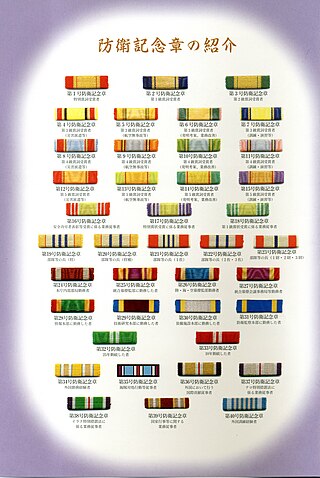A mail-order bride is a woman who lists herself in catalogs and is selected by a man for marriage. In the twentieth century, the trend was primarily towards women living in developing countries seeking men in more developed nations. The majority of the women making use of these services in the late twentieth-century and early twenty-first-century are from East and Southeast Asia, the countries of the former Eastern Bloc, and to a lesser extent Latin America. Since the collapse of the Soviet Union, large numbers of eastern European women have advertised themselves in such a way, primarily from Russia, Belarus, Ukraine, Lithuania, Latvia, Georgia and Moldova. Men who list themselves in such publications are referred to as "mail-order husbands", although this is much less common.

Naomi Kawase is a Japanese film director. She was also known as Naomi Sento, with her former husband's surname. Many of her works have been documentaries, including Embracing, about her search for the father who abandoned her as a child, and Katatsumori, about the grandmother who raised her.

A personal advertisement, sometimes called a contact ad, is a form of classified advertising in which a person seeks to find another person for friendship, romance, marriage, or sexual activity. In British English, it is commonly known as an advert in a lonely hearts column. In India, it is a dating ad or matrimonial ad.

Marc Cherry is an American television writer and producer. He is best known for creating the ABC dramedy series Desperate Housewives.
The term picture bride refers to the practice in the early 20th century of immigrant workers in Hawaii and the West Coast of the United States and Canada, as well as Brazil selecting brides from their native countries via a matchmaker, who paired bride and groom using only photographs and family recommendations of the possible candidates. This is an abbreviated form of the traditional matchmaking process and is similar in a number of ways to the concept of the mail-order bride.
Bride burning is a form of domestic violence practiced in countries located on or around the Indian subcontinent. A category of dowry death, bride-burning occurs when a young woman is murdered by her husband or his family for her family's refusal to pay additional dowry. The wife is typically doused with kerosene, gasoline, or other flammable liquid, and set alight, leading to death by fire. Kerosene is often used as the cooking fuel for dangerous small petrol stoves, so it allows the claim that the crime was an accident. It is most common in India and has been a major problem there since at least 1993.

A flower bouquet is a collection of flowers in a creative arrangement. Flower bouquets can be arranged for the decor of homes or public buildings, or may be handheld. Handheld bouquets are classified by several different popular shapes and styles, including nosegay, crescent, and cascading bouquets. Flower bouquets are often given for special occasions such as birthdays, anniversaries or funerals. They are also used extensively in weddings as well as Olympics Medal Ceremonies. Bouquets arranged in vases or planters for home decor can be arranged in either traditional or modern styles. Symbolism may be attached to the types of flowers used, according to the culture.
The DAK Catalog was published by DAK Industries, a discount electronics importer in the United States, and was named after the initials of the company's owner, Drew Alan Kaplan.
Naiad Press (1973–2003) was an American publishing company, one of the first dedicated to lesbian literature. At its closing it was the oldest and largest lesbian/feminist publisher in the world.
Sugawara Akitada is a fictional character and a hero in a series of historical detective/mystery short stories and novels written by I. J. Parker, set in the Heian period of ancient Japan.
The International Marriage Broker Regulation Act of 2005, or IMBRA, codified at 8 U.S.C. § 1375a(d), is a United States federal statute that requires background checks for all marriage visa sponsors and limits serial visa applications. Additionally, the law requires background checks for US citizens using marriage brokerage services focused primarily on providing dating services between US citizens or residents and foreign nationals for a fee. The impetus for its introduction were the Susanna Blackwell case in 1995 and the Anastasia King case in 2000, in which foreign women had been abused and murdered by men who had used a K-1 fiancée visa issued by the U.S. State Department to bring them to the United States. In the King case, the husband had physically abused a previous foreign bride before murdering Anastasia. King had met Anastasia through his own advertisement in a Moscow newspaper. In the Blackwell case, the husband had a clean record, therefore IMBRA would not have prevented her murder. It was intended to stop abuse of mail order brides by prospective husbands with criminal histories. IMBRA met with opposition from international dating companies when it was first introduced. Some industry executives claim the industry has grown to appreciate it to ensure the safety of its female clients.
The Japan–British Society was founded in 1908 "to encourage the study of things British and to promote cordial relations between the peoples of Great Britain and Japan." It is the oldest bilateral organization in Japan, promoting international cooperation and exchanges.
An Asian fetish is a strong sexual or romantic preference for people of Asian descent or heritage. The term generally refers to people of East or Southeast Asian descent, though may also include those of South Asian descent.
A bride scam is a form of romance scam - a confidence trick that aims to defraud potential grooms with the offer of a foreign bride. The basis of the confidence trick is to seek men from the western world who would like to marry a foreign woman and pretend to be willing to marry them. The woman (scammer) asks the man to send money, for example, for the purposes of purchasing an airline ticket or a visa they have no intention of buying. The relationship ends after requested money has been wired and received, sometimes after multiple transfers have been made.

The Defensive memorial cordon (防衛記念章) is the decoration for officers in the Japan Self-Defense Forces. Officials may wear it on their uniforms while in active service. They are only cordons like the Unit Awards and the Unit Citations of United States Armed Forces.

Bride-buying, also referred to as bride-purchasing, is the industry or trade of purchasing a bride as a form of property. This enables the bride to be resold or repurchased at the buyer's discretion. This practice continues to have a firm foothold in parts of the world such as China, India and Africa. Described as a form of marriage of convenience, the practice is illegal in many countries.

The Anti Mail-Order Spouse Act, officially designated as Republic Act 10906, is a Philippine law that prohibits the business of organizing or facilitating marriages between Filipinas, colloquially called "mail-order brides", and foreign men.

AnastasiaDate is an international online dating website that primarily connects men from North America with women from Eastern Europe.

The dowry system in India refers to the durable goods, cash, and real or movable property that the bride's family gives to the groom, his parents and his relatives as a condition of the marriage. Dowry is referred to dahez in Hindi and as jahez in Urdu.
A Foreign Affair (AFA) is an international dating and marriage agency that promotes romance tours for American men to meet women in Latin America, Southeast Asia, China, Russia, and other CIS countries. The company has over 25 years of experience in the industry and over 30,000 registered profiles.








